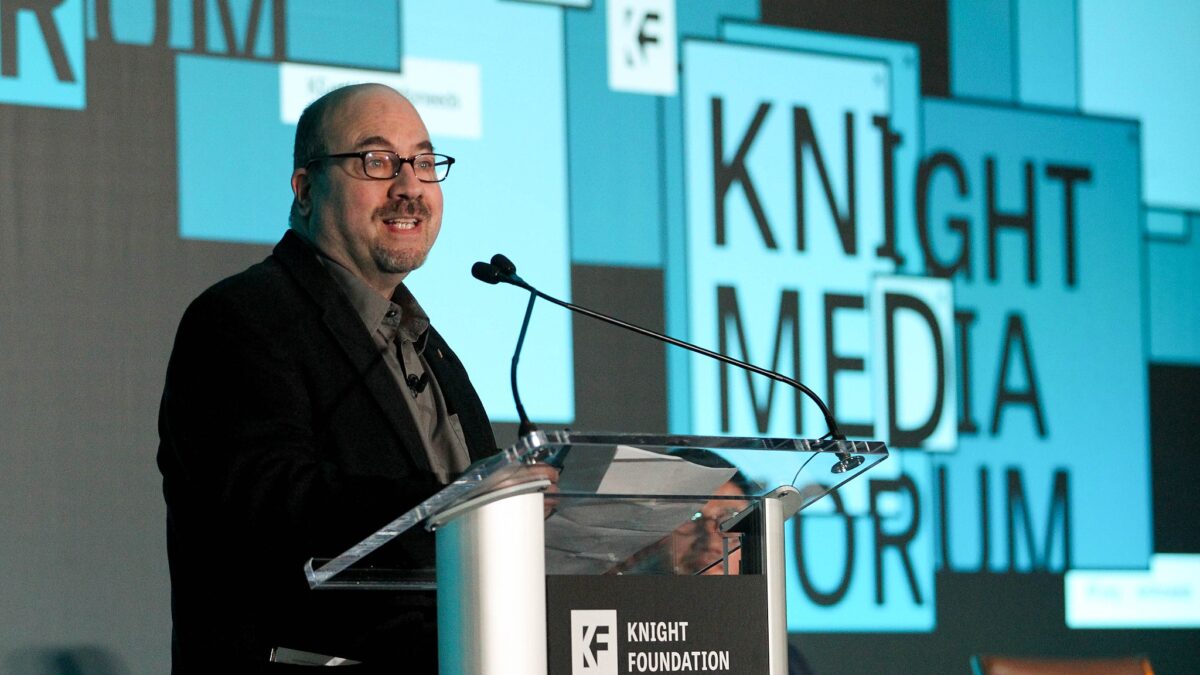The billionaire founder of Craigslist, Craig Newmark, is using his fortune to further shape journalism into partisan activism to help Democrats win elections. He is the nation’s leading financier of the “mis”- and “disinformation” industries and is now the largest private stakeholder in America’s legacy journalism schools.
The most recent Twitter Files released by Matt Taibbi add a deeply disturbing new layer to the story. They show Newmark is at the very heart of an incestuous web of government agencies, nonprofit organizations, and corporate media institutions operating in concert to censor political opponents on social media. Newmark is financing the largest coordinated assault on American free speech in living memory.
On March 9, journalist Matt Taibbi outlined how pre-Elon Musk Twitter acted as “a partner to government,” working in concert with the Department of Homeland Security, Federal Bureau of Investigation, Department of Health and Human Services, Treasury, the National Security Agency, and local police. An elaborate system for reporting hundreds of thousands of accounts was set up, and Twitter obliged by deleting thousands of accounts on demand.
According to Taibbi, the grounds for reporting and deleting many accounts were “shaky.” He pointed to examples of several legitimate journalists and even leftist news outlet TruthOut appearing on internal “disinformation” lists.
However, Taibbi states the majority of requests for censorship did not come from government agencies. Instead, Twitter relied upon a coalition of machine learning, internal human review, and outside “partnerships” to detect “misinformation” on the site.
These outside partnerships played an aggressive role in pushing Twitter censorship. Taibbi calls this group the “Censorship-Industrial Complex.” A 2020 internal email from Nick Pickles, then public policy director at Twitter, set up a working group with nine disinformation non-governmental organizations (NGOs): First Draft, Centre for European Policy Analysis (CEPA), Alliance for Securing Democracy (ASD), International Republican Institute (IRI), Atlantic Council/DFRLab, Stanford Internet Observatory (SIO), Brookings, National Endowment for Democracy (NED) and the National Democratic Institute (NDI).
As Taibbi points out, the NGOs should have checked the power wielded by government agencies within Twitter. In reality, members of the Censorship-Industrial Complex entered into an incestuous working relationship in which it became difficult to disentangle one from the other due to their shared drive for censorship to further leftist political goals.
It was well understood that a unified front could be financially rewarding and that, united, they were the de facto arbiters of truth online. Massive public funds were being injected into supposedly non-governmental organizations to help in this colossal censorship program.
Taibbi gives examples of the Global Disinformation Index receiving funding from the government’s Global Engagement Centre (GEC) and Newsguard receiving funding from the U.S. Department of Defense (DOD). When the government is funding the NGOs whose job it is to push back on government censorship of free speech online, the outcomes are predictable.
To add another layer to this sordid story, the glue that binds this fusion of government, NGOs, and the media together are the billionaire investors funding the NGOs. Chief among these is Newmark. His fingerprints, and financial backing, are all over the Censorship-Industrial Complex.
For example, First Draft was set up to counter what it decided is “misinformation” in newsrooms in the run-up to the 2016 presidential election. In 2017 it was incorporated into Harvard’s Shorenstein Center, to which Newmark donated $5 million to set up Joan Donovan’s now disgraced Technology and Social Change Project. In 2019 Newmark further gave First Draft $1.5 million to help train journalists to identify disinformation in the run-up to the 2020 election.
The Centre for European Policy Analysis (CEPA) is based in DC and receives undisclosed but “generous” funding from Newmark to stop the spread of “disinformation” relating to the war in Ukraine.
Newmark is also deeply involved with the Atlantic Council’s DFRLab. In the 2020 fiscal year, he donated up to $500,000 to the same organization. In 2022 the Council’s Cyber Statecraft division announced the launch of its “Open Source Policy Network” with “generous” but undisclosed funding from Newmark. He was an expert guest speaker at the Atlantic Council’s “2020 Election Integrity and Foreign Influence” panel before that year’s presidential election.
The Atlantic Council also receives millions of dollars in funding from the U.S. government and defense contractors annually. This blurred line between government and non-government organizations within the Censorship-Industrial Complex ensured that the goals of both were closely aligned. Also, importantly, if there was pushback or concerns within Twitter regarding one partner, Twitter’s only recourse was to resort to CEPA, First Draft, or a different NGO within the network that Newmark also funded. Even when government agency advisors and NGOs disagreed on censorship, Newmark could be certain his agenda would prevail.








